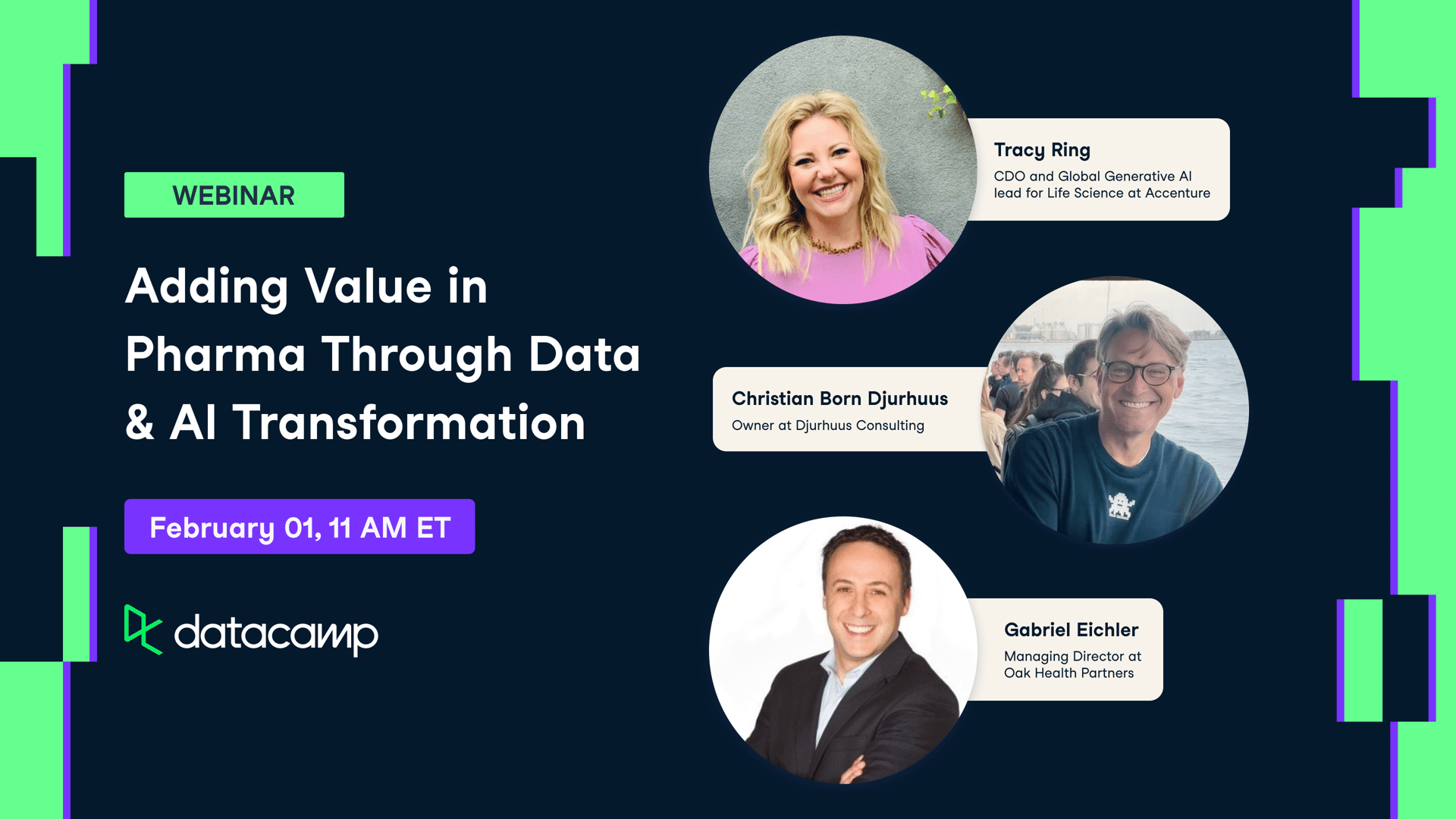Pular para o conteúdo principalSaiba Mais





Falantes

Tracy Ring
CDO and Global Generative AI lead for Life Sciences at Accenture


Treinar 2 ou mais pessoas?
Obtenha acesso à biblioteca completa do DataCamp, com relatórios, atribuições, projetos e muito mais centralizadosRelacionado
infographic
Data Literacy for Responsible AI
Learn how data literacy fuels responsible AIwebinar
Scaling Data & AI Literacy with a Persona-Driven Framework
In this session, three experts walk you through the steps of creating a successful data training program.webinar
Scaling Data & AI Literacy with a Persona-Driven Framework
In this session, three experts walk you through the steps of creating a successful data training program.webinar
How AI Can Improve Your Data Strategy
Find out how AI, ML, and data science can inform your data strategy.webinar
Artificial Intelligence for Business Leaders
We'll answer the questions about AI that you've been too afraid to ask.webinar
Spreading Data & AI Literacy Across Your Organization
Learn how to devise a data and AI strategy that aligns with your business strategy, and how to combine technology and training to increase the data and AI literacy across your company for business success.Join 5000+ companies and 80% of the Fortune 1000 who use DataCamp to upskill their teams.
Loved by thousands of companies
